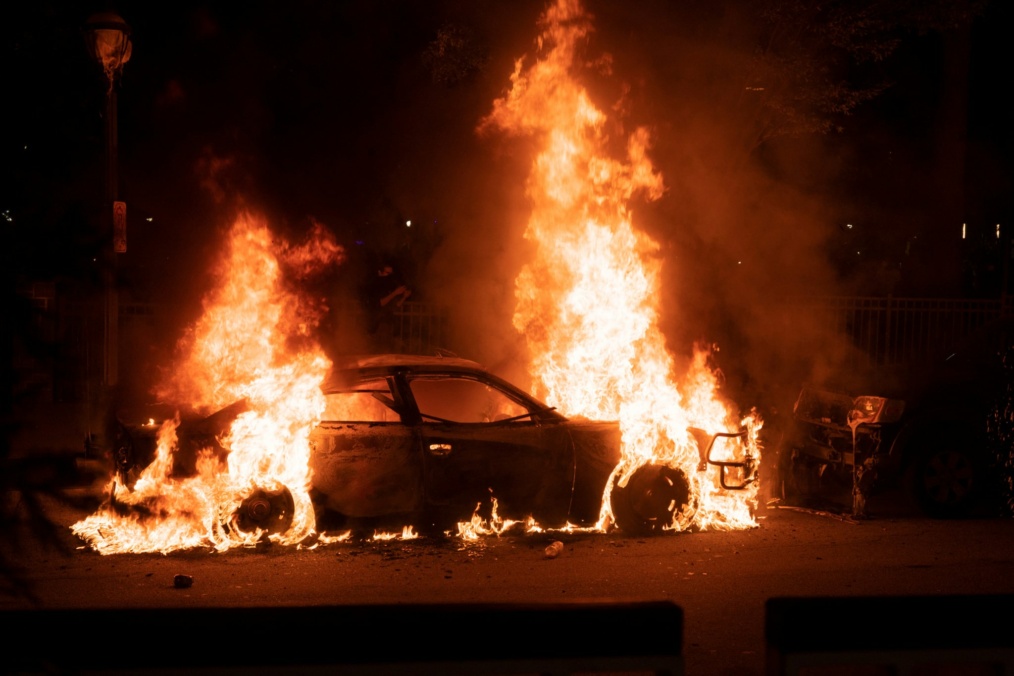On December 14th, two bomb explosions were registered in Colombia at the border city of Cúcuta. The explosions occurred near the Camilo Daza Airport and left two police officers and one civilian dead.
These attacks add to the wave of violence in the Norte de Santander Department, located on Colombia’s border. In recent months, the civilian population and the security forces have been victims of criminal and terrorist actions by various groups that operate on the Colombian-Venezuelan border.
Wave of Violence at the Border
The explosions at the Cúcuta Airport are just one example of the terrorist actions affecting the border area between Colombia and Venezuela. Two factors can explain the disarray of public order at the border. First, this region of the world has the highest concentration of illicit crops, according to the United Nations, such as the enormous production of cocaine in the region of Catacumbo.
Secondly, public order is affected by the presence of dissidents of the FARC and the ELN; Venezuela is a safe haven for terrorist organizations and there is a lack of presence by the Colombian State. In fact, according to the Colombian authorities, 14 criminal organizations dispute the trade in illicit drugs, human trafficking, the sale of weapons, and the smuggling of merchandise in the region.
One of the most relevant terrorist attacks in recent months in Norte de Santander was the car bomb attack against Brigade 30 of the Colombian National Army. The explosion occurred on June 15th and injured 34 soldiers and two civilians. This attack was extremely worrying for the Colombian authorities, given that the vehicle carrying the bomb easily entered the army’s facilities. Although it is not completely clear who ordered the attack, it was likely the responsibility of local ELN cells.
Additionally, another recent terrorist act was the attack against Colombian President Iván Duque Márquez. The attack occurred on June 15th in the municipality of Sardinata, Norte de Santander.
The president was attacked with rifle bursts while boarding his helicopter; however, the attack did not result in any injuries. The mastermind of the attack, a former Colombian military man who joined as a member of the 33rd Front of the FARC dissidents, was captured. In addition, the Colombian authorities indicated that the attack was planned and organized from Venezuela.
Violence and crime do not seem to end in Norte de Santander. According to Brigadier General Fabio Cancelado, there are 1,500 armed men in the department, divided into illegal groups such as the ELN, the “Gulf Clan,” the dissidents of the 33rd Front of the FARC, the “Tren de Aragua,” the “Pelusos,” and “Rastrojos.”
These organizations are financed by illegal activities, such as cocaine trafficking, and are responsible for the murder of 22 social leaders and the displacement of 448 people in 2021.
The Two Explosions
The explosions on December 14th were attacks that once again terrorized the population at the Colombian-Venezuelan border.
The first explosion occurred when an individual attempted to jump over an airport gate. The individual fell, and the device exploded. Minutes later, a suspicious device was found near the area of the first explosion. When two police officers from the explosive’s unit examined it, the bomb exploded.
The Colombian defense minister emphasized that these terrorist attacks are being planned from Venezuela by terrorist groups. The Colombian authorities believe the ELN and the 33rd Front of the FARC dissidents are responsible for the attack.
How to Stop the Violence?
Despite the fact that the problem of crime, violence, and terrorism at the Colombian-Venezuelan border area is of immense proportions, some actions can, and must, be taken.
Due to the significant amount of illicit crops, coca production and trafficking, and the income generated from this activity, it is necessary to spray coca crops with aerial and targeted herbicides. This will reduce the crops, and subsequently the income, of the terrorist organizations that operate in Norte de Santander.
Furthermore, it is necessary to protect the social leaders who live in this area and mitigate massive forced displacements.
Finally, it is necessary for the Colombian Armed Forces and the National Police to strengthen their intelligence, counter-terrorism, and counter-narcotics capabilities. This is of the utmost importance to anticipate terrorist attacks and effectively combat illegal armed groups in the region.
Daniel Felipe Ruiz Rozo, Counter-Terrorism Research Fellow





